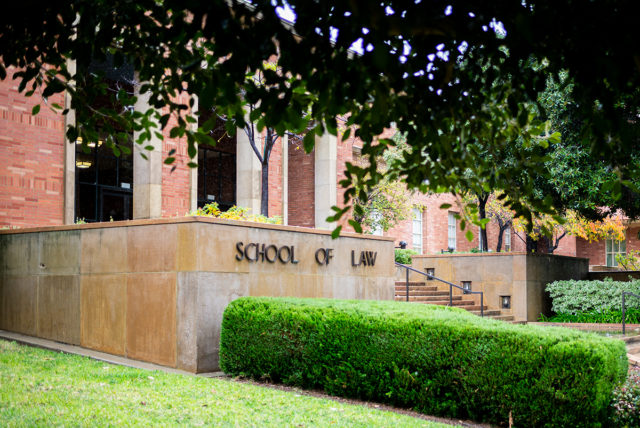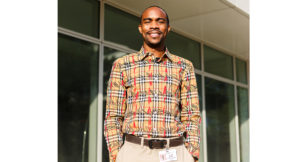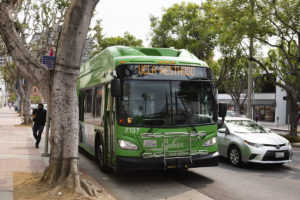This post was updated March 17 at 11:09 a.m.
Two UCLA School of Law alumni, Marisa Hernández-Stern and Michael Weinstein were appointed to the Los Angeles Superior Court by Governor Gavin Newsom on Jan. 29.
Hernández-Stern and Weinstein, who graduated from the law school in 2010 and 2008, respectively, will assume their positions on March 4 to serve six-year terms. While Superior Court judges are typically elected through a nonpartisan ballot in general elections, the governor is responsible for filling vacancies.
Both alumni will fill vacancies left by retirements. Hernández-Stern is set to succeed Judge Katherine Chilton while Weinstein will serve in Judge Mary H. Strobel’s former position.
In her time at the law school, Hernández-Stern was a part of the David J. Epstein Program in Public Interest Law and Policy and the Critical Race Studies Program. The public interest law program specializes in teaching students who hope to work in public service, including with low-income clients, immigration law and public defense, said Karin H. Wang, the executive director of the program.
She added the program is competitive and requires students to apply for it.
“It’s unusual in the law school in that way that you can’t just opt into it,” Wang said. “That meant she (Hernández-Stern) was one coming in already. As a student, she was already one of the most dedicated and focused to using her law degree to pursue issues of justice.”
Hiroshi Motomura, co-director of the Center for Immigration Law and Policy and distinguished professor at UCLA Law, added that Hernández-Stern has been devoted to pursuing social justice since she was in law school.
“Marisa was one of the pioneers in this generation of immigration law students at UCLA,” he said in an emailed statement. “She was consistently concerned with bigger questions of fairness and the need to give voice to people in the community who aren’t being heard.”
While at UCLA Law, Weinstein was involved in the Williams Institute, a program dedicated to researching sexual orientation and gender identity policy, serving as the student note editor for the organization’s Journal of Sexual Orientation & Gender Identity. Weinstein was also co-chair of the National Lawyers Guild student chapter.
After graduating from UCLA, both judges began their careers as clerks. From 2011-2012, Hernández-Stern served as a clerk for Judge Harry Pregerson in the Ninth Circuit of the United States Court of Appeals. Weinstein clerked for two judges in California’s Central District – U.S. District Judge Philip S. Gutierrez from 2008-2009 and U.S. District Judge J. Spencer Letts from 2009-2010.
After her clerkship, Hernández-Stern went on to work for Traber & Voorhees from 2012-2015 and Hadsell Stormer Renick & Dai from 2015-2016, which are both public interest firms specializing in civil rights and employment law.
She then began working in the California Department of Justice, Worker Rights and Fair Labor Section, where she was a deputy attorney general from 2017-2020 and has served as supervising deputy attorney general since 2020.
Weinstein transitioned to public defense after his time clerking. Since 2010, he has worked in the office of the Federal Public Defender for the Central District of California, serving in various roles. In 2022, he served as chief of the Noncapital Habeas Unit Office, litigating cases involving those given life and death sentences.
Wang said Hernández-Stern and Weinstein’s backgrounds in public defense will help make the system more balanced by increasing the court’s breadth of practice areas and experiences.
“Public interest lawyers make up a relatively small percentage of people who get appointed to be judges,” she said. “… It’s actually always super exciting to see someone who has spent their life doing criminal defense, trying to defend the people who have the least voice or access in the legal system, and people like Marisa, who have been civil rights advocates and champions, appointed to the bench.”
Despite his appointment, Weinstein remains involved in the UCLA community. Serving as a lecturer at UCLA Law, he co-teaches the course “Part-Time Externship: Federal Public Defender.” The class, which Wang said was highly popular, allows students to join Weinstein in his work in the Non-Capital Habeas Unit of the Federal Public Defender’s Office, giving them hands-on experience in the criminal legal system.
In an emailed statement, Weinstein said he remains involved in the UCLA community as a way to give back to the law school that offered him world-class academic opportunities and helped him find a sense of purpose.
“I feel an obligation to give back to it, which I have done through activities like alumni mentorship programs and teaching the next generation of prosecutors and defense lawyers,” Weinstein said. “As I start my new career as a judge, I hope to continue giving back to my alma mater in even greater ways.”
Jerry Kang, a distinguished professor of law, said Hernández-Stern also retains her ties to UCLA, having extended a job offer to a UCLA law student.
In 2022, Hernández-Stern was one of five alumni given the “U. Serve L.A.” award, an honor given by UCLA Law to champions of public service. Wang said Hernández-Stern was given this award not only for her excellent legal work but also for her efforts in advancing diversity.
“A lot of people here at the law school know her because she spent a lot of time mentoring younger law students and lawyers,” Wang said. “She’s been instrumental in one of the local bar associations, the Latina Lawyers Bar Association, which has helped build a pipeline of young Latinas considering clerking for judges and working as judges.”






Comments are closed.